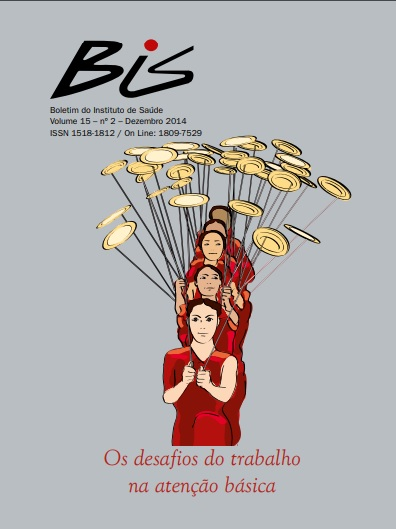Abstract
The authors discuss the process of implementing The Family Health Program in municipalities of the metropolitan area of Santos, considering the advances and impasses identifi ed by managers and supervisors. This is an exploratory, descriptive and qualitative study that has been outlined as a case study and conducted with 11 key informants acting in the politics and the organization of basic health network. The results highlight that The Family Health Program played the role of a structural axis in the local health systems analyzed, acting primarily in the organization and resolution of the entry door. Nevertheless, the comprehensive health care, the SUS principle and the “longitudinality of care” were relegated to second place, remaining a major challenge to be faced.
References
2. Bardin, L. Análise de conteúdo. Lisboa: Edições 70; 1979.
3. Ministério da Saúde. Secretaria de Atenção à Saúde. Departamento de Atenção Básica. Política Nacional de Atenção Básica. Brasília (DF); 2006.
4. Gil AC. Métodos e técnicas de pesquisa social. São Paulo: Atlas; 1994.
5. Giovanella L, Mendonça MHM, Almeida PF, Escorel S, Senna MCM, Fausto MCR, et al. Saúde da Família: limites e possibilidades para uma abordagem integral de atenção primária à saúde no Brasil. Ciênc Saúde Col. 2009;14(3): 783-794.
6. Minayo MCS. O desafi o do conhecimento: pesquisa qualitativa em saúde. São Paulo; Rio de Janeiro: Hucitec; Abrasco; 2004.
7. Mishima SM, Pereira FH, Matumoto S, Fortuna CM, Pereira MJB, Campos AC, et al. A assistência na saúde da família sob a perspectiva dos usuários. Rev Latino Amer Enferm. 2010; 18(3):148-155.
8. Starfi eld, B. Atenção Primária: equilíbrio entre necessidades de saúde, serviços e tecnologia. Brasília: Unesco; 2002.
9. Viana ALA, Rocha JSY, Elias PE, Ibañez N, Novaes MHD. Modelos de atenção básica nos grandes municípios paulistas: efetividade, efi cácia, sustentabilidade e governabilidade. Ciênc Saúde Col. 2006; 11(3): 577-606.

This work is licensed under a Creative Commons Attribution 4.0 International License.
Copyright (c) 2022 Renato Barboza, Maria de Lima Salum e Morais
